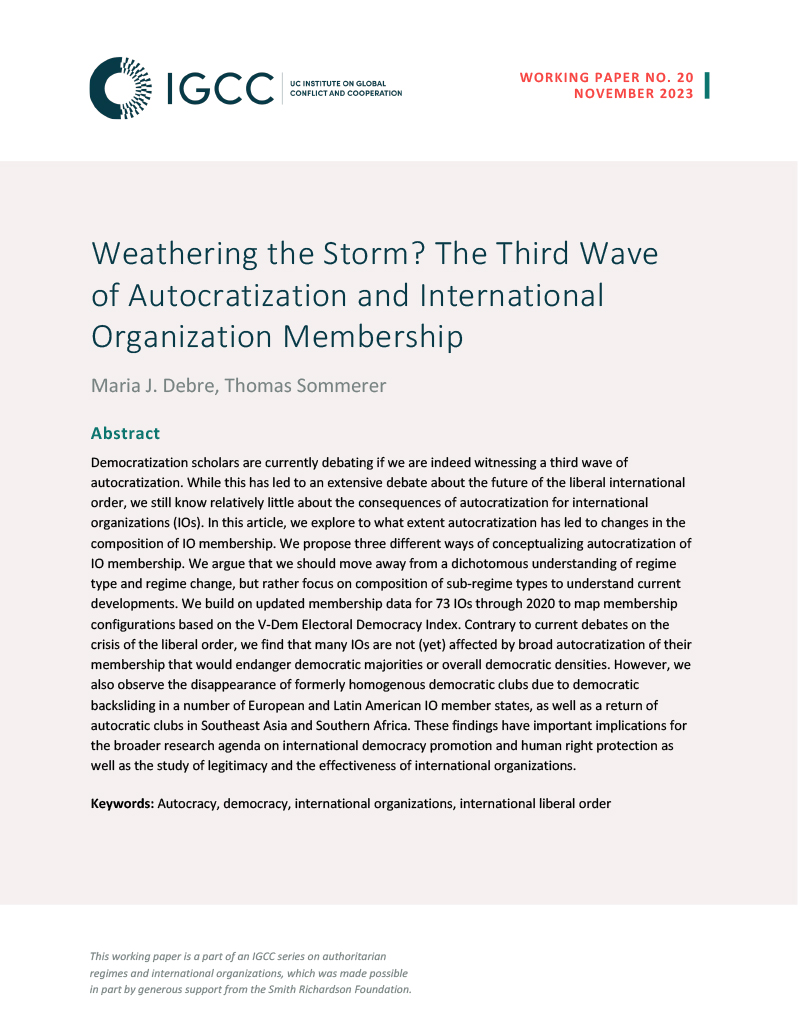The Third Wave of Autocratization and International Organization Membership

In this working paper, Maria J. Debre and Thomas Sommerer find that many international organizations are not—yet—affected by autocratization of their membership that would endanger democratic majorities. They also observe the disappearance of formerly homogenous democratic clubs due to democratic backsliding in a number of European and Latin American IO member states, as well as a return of autocratic clubs in Southeast Asia and Southern Africa.
DownloadIs the world currently witnessing a third wave of autocratization? Though the question has led to an extensive debate, little is known about the consequences of autocratization for international organizations (IOs). In this working paper, Maria J. Debre, professor and chair for international relations at Zeppelin University Friedrichshafen, and Thomas Sommerer, professor of international organizations in the Department of Politics and Public Administration at the University of Potsdam, explore to what extent autocratization has led to changes in the composition of IO members. The authors, both members of the IGCC network of scholars working on authoritarian regimes and international institutions, propose three ways to conceptualize autocratization of IO membership. They build on updated membership data for 73 IOs through 2020 to map membership configurations based on the V-Dem Electoral Democracy Index. Contrary to current debates on the crisis of the liberal order, they find that many IOs are not—yet—affected by broad autocratization of their membership that would endanger democratic majorities or overall democratic densities. However, they also observe the disappearance of formerly homogenous democratic clubs due to democratic backsliding in a number of European and Latin American IO member states, as well as a return of autocratic clubs in Southeast Asia and Southern Africa. These findings have important implications for the broader research agenda on international democracy promotion and human right protection as well as the study of legitimacy and the effectiveness of international organizations.
This working paper is a part of an IGCC series on authoritarian regimes and international organizations, which was made possible in part by generous support from the Smith Richardson Foundation.
Thumbnail credit: U.S. Army Southern European Task Force